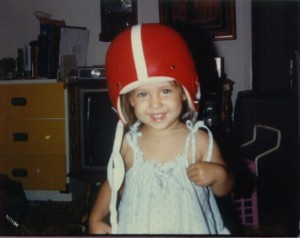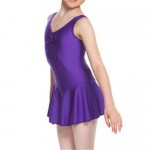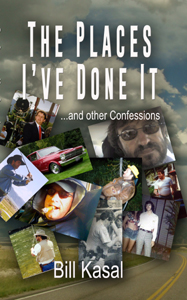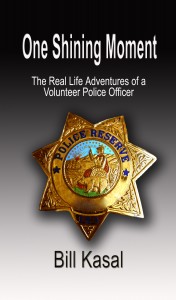It is very difficult to mind my tongue when I’m feeling defensive or emotional. Most every time when I verbally lash out, I regret the words I’ve said and know I cannot take them back. Whether I’m later contrite is irrelevant. Once the arrow has been loosed, there’s no taking it back. There’s little more for the archer to do but pray the damage is not too severe, beg forgiveness and strive to be more conscious in the future.
Callous behavior begins when we’re young. It has been said a billion times that “kids are cruel.” And, though sometimes it is with self-involved ignorance of the feelings of others, most often it is with intention.
Once, when my daughter was four- or five-years-old, she had begged me to let her ice skate at the rink in the local mall. One afternoon I had some spare time and finally acquiesced, rented her some skates and sat by the railing while she took her first tentative steps onto the ice. I kept an eye on her as she inched along. Sometimes she’d let go of the railing and shuffle along for five feet or so, but for the most part, it was very slow going.
 Since almost the time of her birth, my daughter awoke each morning with a smile. Today she’s an adult, with a job and a kid and all of the responsibilities that come with parenthood, yet each time I see her, whether she sees me first or not, she’s smiling. Sometimes I have lunch where she works and I watch her as she smiles; and I see the faces of customer after customer light up when they see her.
Since almost the time of her birth, my daughter awoke each morning with a smile. Today she’s an adult, with a job and a kid and all of the responsibilities that come with parenthood, yet each time I see her, whether she sees me first or not, she’s smiling. Sometimes I have lunch where she works and I watch her as she smiles; and I see the faces of customer after customer light up when they see her.
That day on the ice she was smiling, too. She had been asking me for months to let her ice skate and all of the joy of her first experience on that cold, slick surface was radiating from her face. To watch her, in her little dress, push along on her rented skates with that enormous grin, brought a grin to my face, as well.
 Other, more experienced skaters whizzed past her while some kept a similar pace. She didn’t appear to notice them. From my vantage point, she seemed to care about nothing more than trying to skate and enjoying the moment. Each time she scooted past I offered her encouragement with as big a smile as I could muster.
Other, more experienced skaters whizzed past her while some kept a similar pace. She didn’t appear to notice them. From my vantage point, she seemed to care about nothing more than trying to skate and enjoying the moment. Each time she scooted past I offered her encouragement with as big a smile as I could muster.
After a few hesitant laps of the rink, two girls, both perhaps a few years older and much more experienced at skating, slid up to her and giggled something to her from behind cupped hands. My first thought was that it was nice of them to include my younger daughter in their play, but her fleeting moments of joy on the ice that day ended abruptly as I saw her face drop. The other girls giggled more openly as they skated quickly away.
 My daughter reached for the hemline on her little dress and pulled it downwards. She shuffled along some more, right past me, without making eye contact. My assumption was that they had told her that, as she skated, they could see her underwear because, with her head down, she hobbled along, stiff-legged, never once releasing what was now a death grip on her skirt.
My daughter reached for the hemline on her little dress and pulled it downwards. She shuffled along some more, right past me, without making eye contact. My assumption was that they had told her that, as she skated, they could see her underwear because, with her head down, she hobbled along, stiff-legged, never once releasing what was now a death grip on her skirt.
The pain of embarrassment now replaced the elation of her long-awaited desire to ice skate. She never once lifted her eyes as she made one more halting circle of the rink, and then stepped off the ice. She turned to me and her look from across the ice told me she was finished. I made my way around to the benches and tried to be upbeat.
“All done for this time?!” I asked.
She barely nodded her head and didn’t look at me. She put her shoes on, took my hand, and we exited the rink. And she never made another request of me to go ice-skating.
Had these very young girls been malicious? Perhaps. Perhaps they just wanted her to know that others could see something and, if it were them, they’d have wanted to be told. The fact that they giggled about it in such a cavalier manner made me think otherwise and that they got some joy out of her humiliation.
I ached for her and quietly fumed over wanting to slap those little bitches. As we drove home, my mind recalled some of my own childhood memories.
I was ten- or eleven-years-old, in fourth or fifth grade, and I played Little League Baseball. Baseball was my favorite thing in the whole world. Nothing else mattered to me but playing baseball. During one game, I was standing on the top step of the dugout, waiting my turn to go on deck. As with each time I awaited my turn to bat, my heart was racing with eager expectation.
There was a teenager who was volunteering as a coach with our team. He was probably about 16 or so, but at my age, I saw him as an adult. As I fidgeted on the top step, he turned to me to say something. I looked to him, eagerly anticipating his instructions for my next at-bat. He looked down at me, paused a moment, and with complete disgust said, “God, you’re ugly.”
I can see him saying that as if it were yesterday. His words sliced into me and I can remember how they actually physically assaulted my body. I could feel them. I don’t know what I did in that at-bat or anything about the rest of that game or the days and weeks that followed. But I can, nearly five decades later, still see his face and hear his words and inflection; and how they felt in my chest. And I still think I’m ugly. Perhaps I don’t need his help to have low self-esteem, but he’s there, in the recesses of my mind, always with me.
Recalling that, I wanted even more to return to the rink and those two skating-girls and shake them. Do you have any idea the pain you can cause when you are inconsiderate of the feelings of another?!?!
But at their age, even if you know better, is it possible to resist the urge to be cruel to another so as to not be set apart from your friends?
Some people learn, as they grow older, to not say cruel things to others. Some don’t. Some folks speak without thinking and inflict barbs of cruelty into the chests of others; more often than not to those they love and hold most dear.
One of those people is me. I have said some very hurtful things in my life and those are words I can never take back. All I can do is beg forgiveness for my callous, unthinking words and deeds.
I am making an effort to speak less and listen more. I am also making an effort to think before I speak; even when in the heat of the moment or when I am feeling defensive. It takes conscious effort and I’m not always successful, but I am more aware of my speech.
Forgive me if you’re one of the people to whom I was a jerk.
Let’s try to think before we speak.
Let’s remember to whom we’re speaking.
Let’s remember we’re all connected and what happens to one happens to us all.



